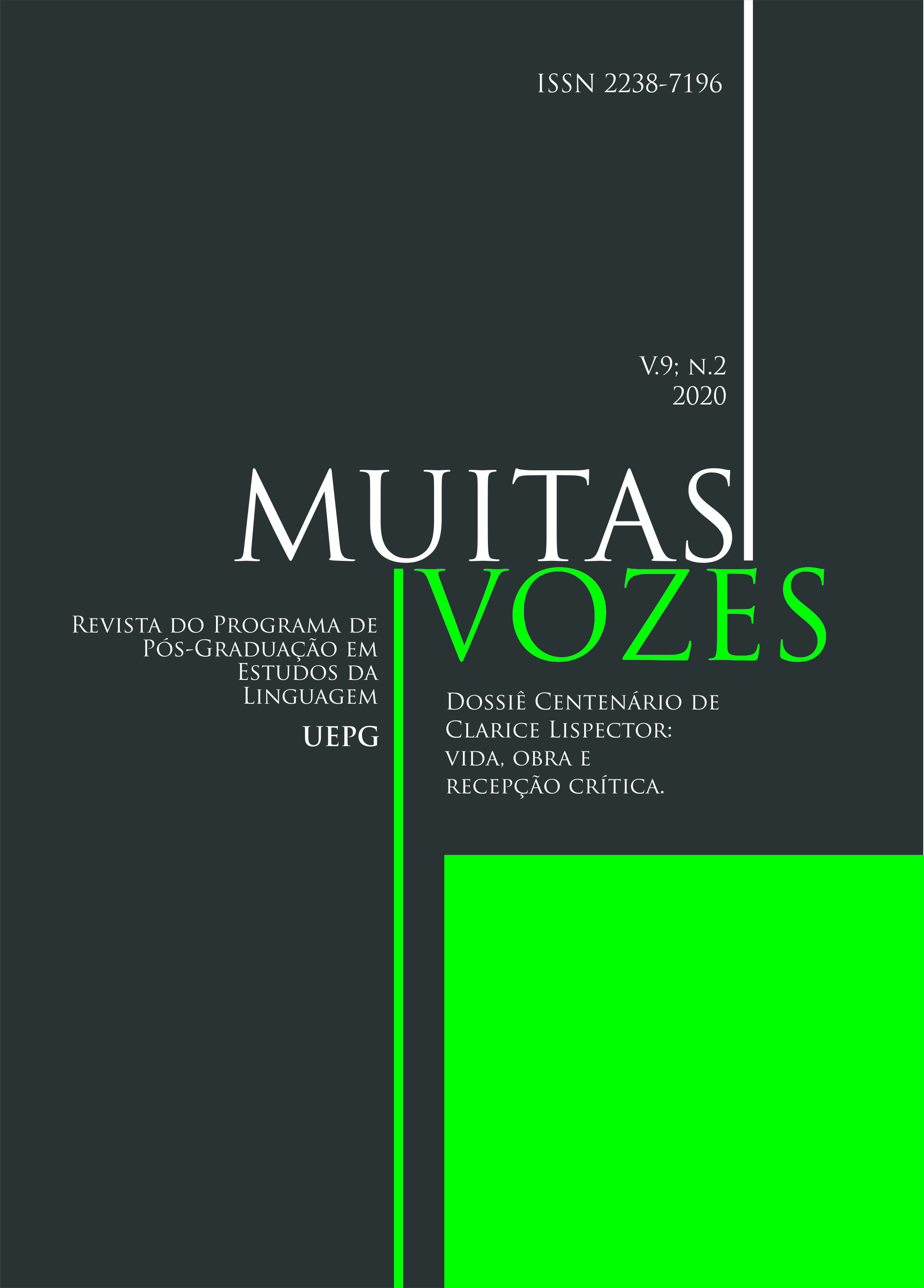SILÊNCIO E EXÍLIO EM A MAÇÃ NO ESCURO, DE CLARICE LISPECTOR
Résumé
Neste texto, objetivamos, a partir da leitura do romance A maça no escuro (1970), de Clarice Lispector, abordar temas como testemunho e exílio, refletindo sobre essas caracterizações a partir do crime da personagem principal, Martim – tentativa de assassinato de sua esposa – e sua consequente fuga (assim, por ser um fugitivo, Martim tenta esconder seu passado, embora não sinta culpa por seu ato). Desse modo, analisamos sua condição quase amoral e sua recusa de falar/testemunhar sobre sua experiência, assim como também refletimos sobre seu novo mundo (na fuga, encontra uma fazenda, em que se abriga) não como reapropriação, mas como recusa e potência da negação. A partir dessa experiência, pensamos que seja possível apontar um espaço em exílio, que surge a partir do silêncio e perda da linguagem. Para tanto, neste trabalho, apoiamo-nos, principalmente, nos autores Giorgio Agamben (2008), Jean-Luc Nancy (1996) e Maurice Blanchot (2003).
Téléchargements
Téléchargements
Publié-e
Comment citer
Numéro
Rubrique
Licence

Este obra está licenciado com uma Licença Creative Commons Atribuição 4.0 Internacional.
Transferência de direitos autorais: Caso o artigo submetido seja aprovado para publicação, JÁ FICA ACORDADO QUE o autor AUTORIZA a UEPG a reproduzi-lo e publicá-lo na REVISTA MUITAS VOZES, entendendo-se os termos "reprodução" e "publicação" conforme definição respectivamente dos incisos VI e I do artigo 5° da Lei 9610/98. O ARTIGO poderá ser acessado tanto pela rede mundial de computadores (WWW - Internet), como pela versão impressa, sendo permitidas, A TÍTULO GRATUITO, a consulta e a reprodução de exemplar do ARTIGO para uso próprio de quem a consulta. ESSA autorização de publicação não tem limitação de tempo, FICANDO A UEPG responsável pela manutenção da identificação DO AUTOR do ARTIGO.



